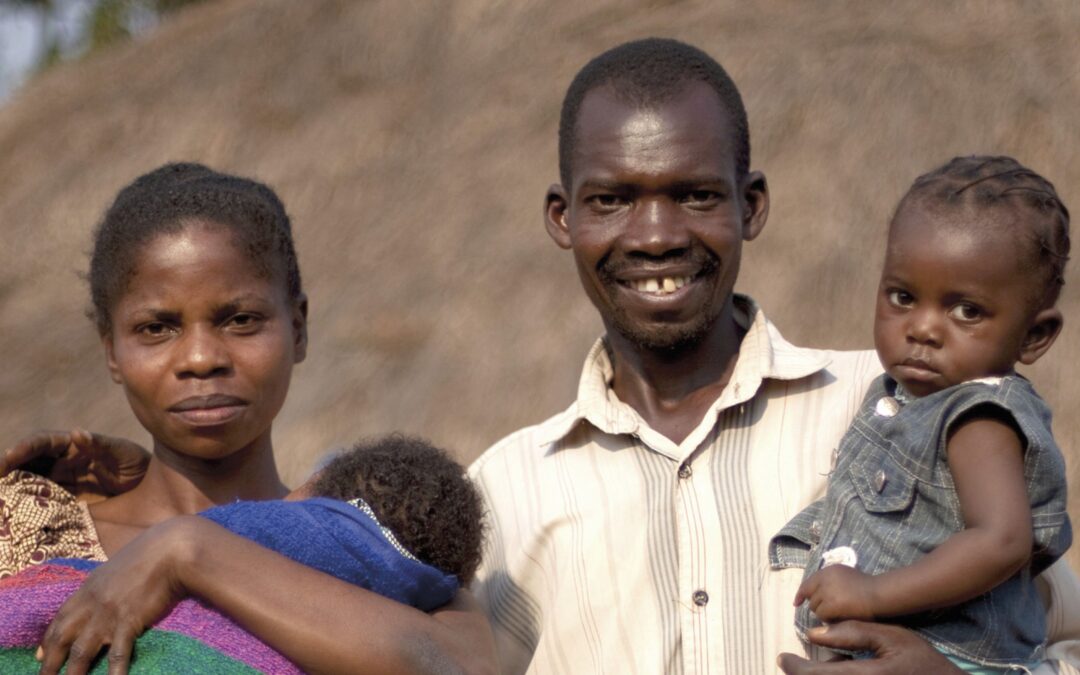Recently, Sharon Eubank, President of Latter-day Saint Charities, and Lolis Maria Salas Montes, Executive Director of the Department of Children, Adolescents, and Youth (DINAF) with the government of Honduras, shared best practices of faith-based organizations working in tandem with governments on humanitarian projects involving the entire family unit. Sharon Eubank indicated that, in such partnerships, governments are able to help navigate red tape while faith-based humanitarian aid organizations bring grassroots communities and volunteers to help carry out projects. Ms. Salas indicated that her personal experience has illuminated the tremendous ways her own nation has benefited from the humanitarian response by The Church of Jesus Christ of Latter-day Saints and other faith-based humanitarian actors.
Eubank further addressed these points by emphasizing that humanitarian aid can be a strength to the family, but that such aid must be properly structured, such as by providing needed training to families in an effort to enhance self-sufficiency. “The best kind of aid,” she said, “activates the family in the help they receive.”
Both Ms. Eubank and Ms. Salas also addressed the role of media and social media in helping to facilitate the provision of assistance to families in need. Ms. Salas indicated that drawing attention to the rights of children and youth and to the many challenges and dangers they face is one way the media can benefit families.
Eubank also noted that media plays a role that no one else plays, and emphasized that “when media serves an agenda that is something other than the truth, all of society is poorer from it.”
Additional key points from Sharon Eubank’s presentation on the family in humanitarian settings:
“I often think about the phrase in the Universal Declaration of Human Rights that says that the family is the natural and the fundamental building block of society. … As we talk about families in humanitarian crises, it couldn’t be more natural. … It’s interesting that we talk about governments and faith-based organizations because they bring different strengths to a partnership. Governments, of course, are focused on the needs that their people have and they have a structure and a resource and the ability to coordinate and convene a lot of partners together. They can also open the door through bureaucratic hurdles which can also get in the way of humanitarian aid.
“The reality of strengthening families in whatever situation they’re in is to the greater good of society. Aid can strengthen a family in many different ways. Aid can also hurt families if it isn’t structured properly. We can turn families in to victims and passive recipients of things and not have control over their own destiny if aid isn’t administered in proper ways.”
When aid is a strength to the family, it bolsters their ability to chose and decide what to do next in whatever circumstance they are in.
Sharon Eubank
I saw an example of this in a refugee setting in Jordan. A Syrian family came over and they were recipients of a training of how to have family meetings. They lost everything, they’re cut off from many of their family members. But every night, these families in this refugee setting would hold a meeting and people would say, “What did you learn today? What did you do at school?” The parents started discussing the larger family members, with grandparents and parents, and connecting the four generations together. The kids were listing on a piece of paper their four generations and then the parents would describe what they wanted to do this week. We were asking the family to have a goal and they would pick something like, “We want to collect enough sugar to make the knafa (treat) that we love.” They had these small goals and that small intervention—it didn’t cost money but was skill training on how to have a family meeting—it bonded the families, it allowed them to have some identity and some cohesion in a very unstable situation. And you don’t have to be in a refugee setting to do that.”
Don’t miss this week’s episode of The Raising Family podcast, where hosts David Steele and Linda Hill interview experts on issues involving the family, culture and society. The show airs every week wherever you get your podcasts.

